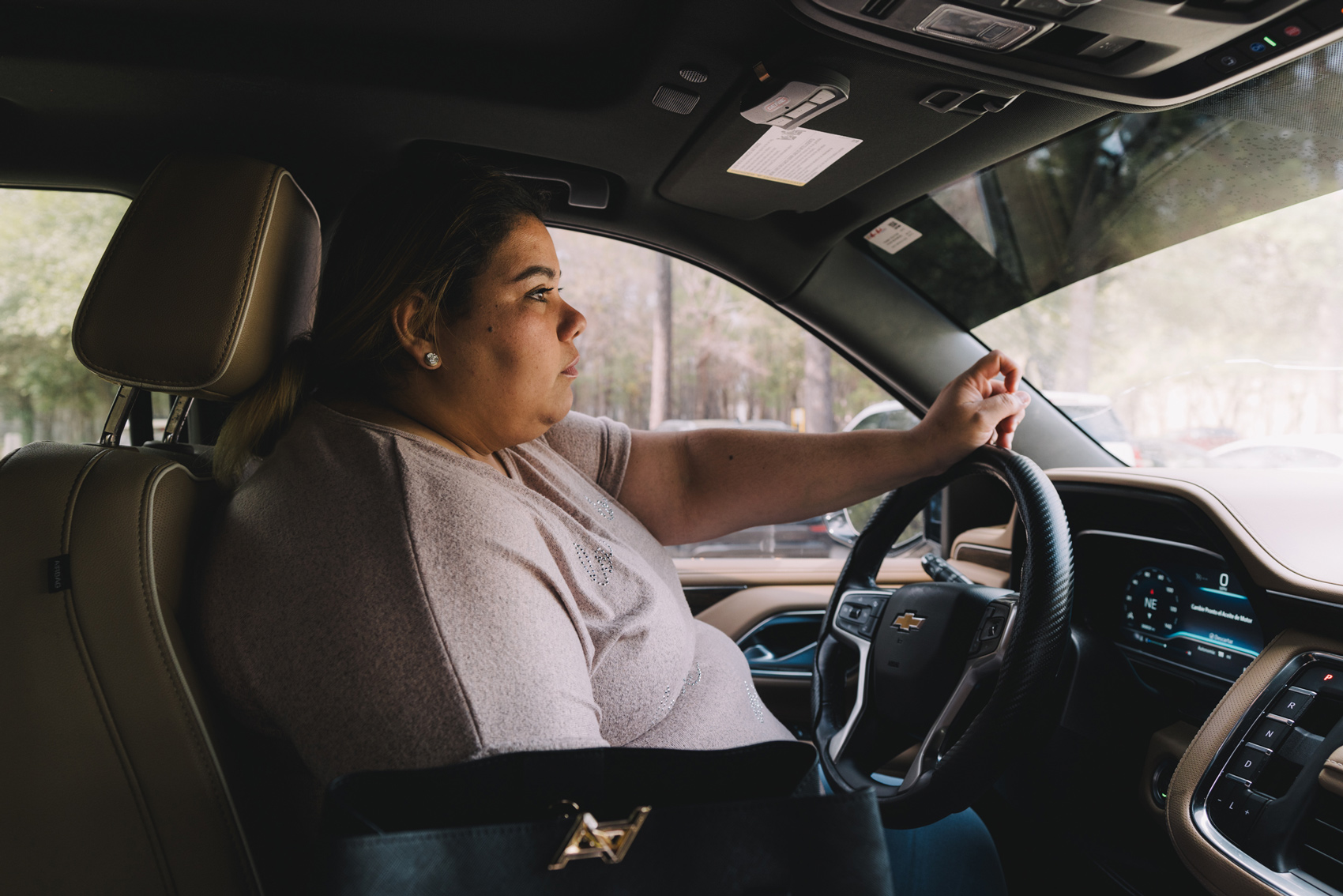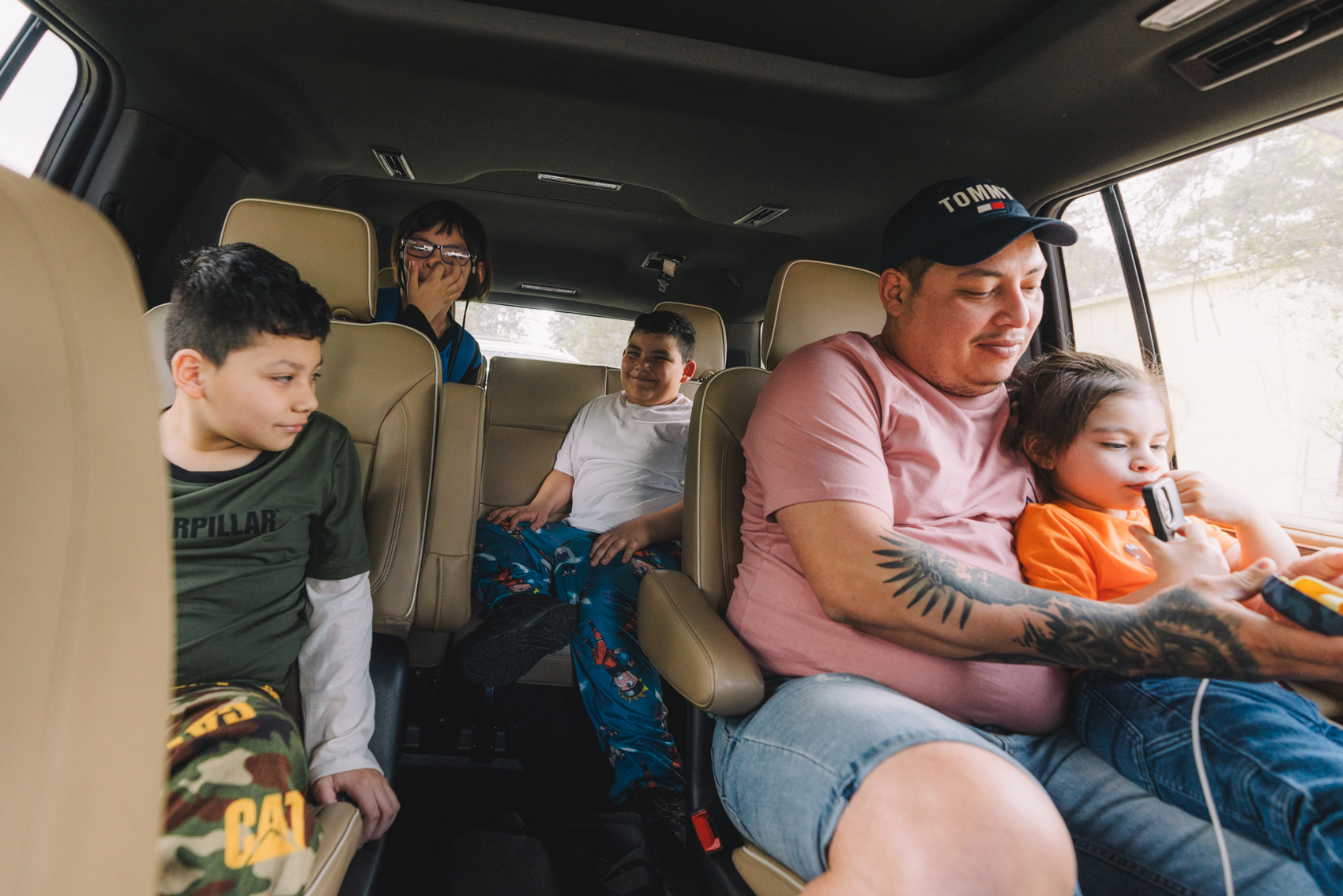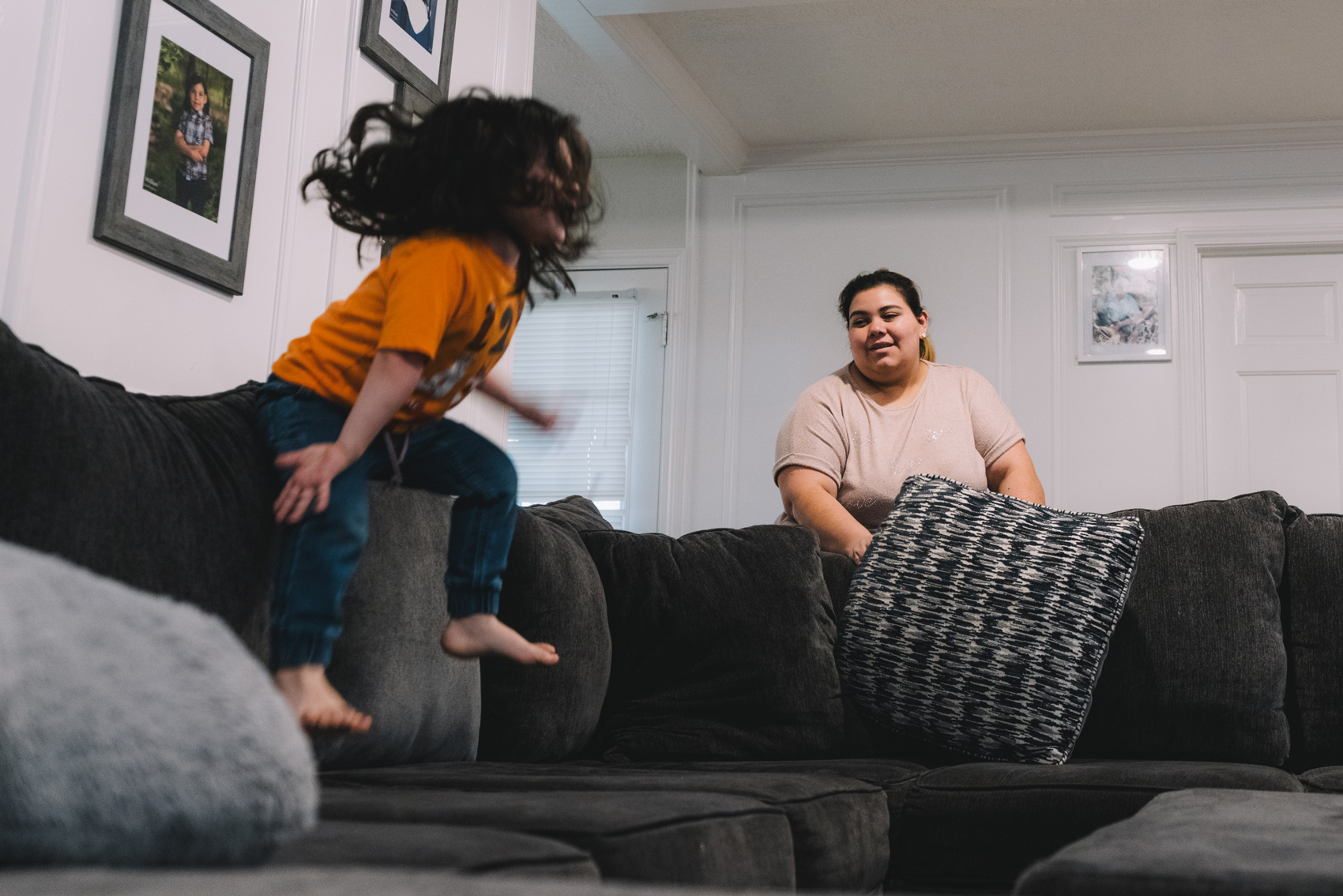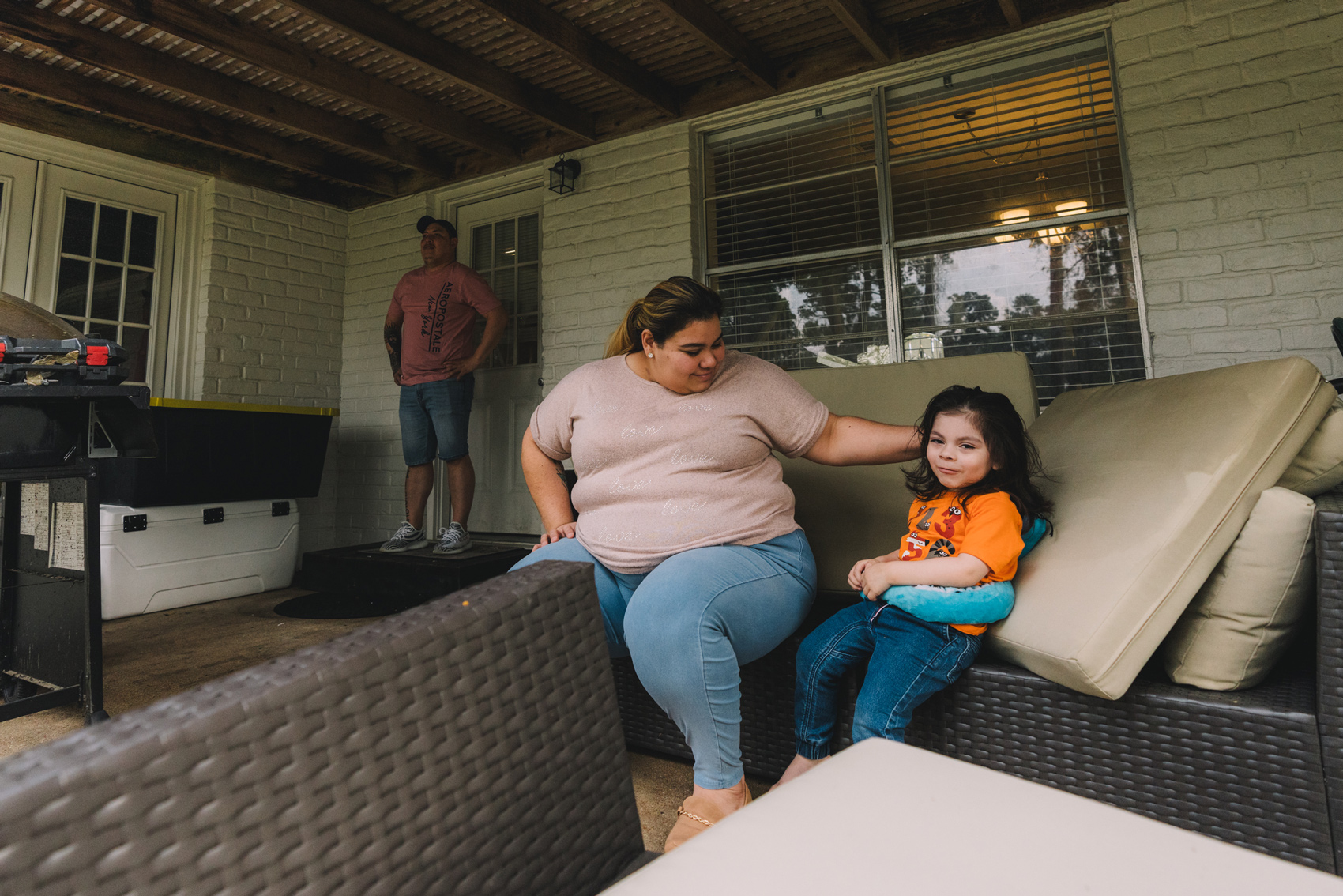|
Getting your Trinity Audio player ready...
|
When Blanca, 49, found out her immigration court case was thrown out, she let out a sigh of relief. When the same happened to Maria Pineda, 31, it was one of the worst days of her life.
Both women have spent more than a decade in the U.S., living and working in Houston and raising their kids, who are U.S. citizens. Blanca, originally from Mexico and who asked to be identified by first name because of her immigration status, has another pathway to citizenship through her kids who are old enough to sponsor her. Pineda, from El Salvador, can only get legal status through winning her court case.
Their fates were at the center of a Biden administration immigration policy implemented last year that aims to cut down the record 3.4 million immigration court backlog by dismissing court cases through prosecutorial discretion, a longstanding authority that allows agencies to decide how to focus their resources.
In an increasingly winding immigration system that includes multiple federal agencies, some people, like Blanca, have other pathways available to them when one is shut off. For others, such as Pineda, the route to legal status is a narrow path with only one door at the end.
Their stories show how policies intended to free up resources in a backlogged immigration system can instead push some immigrants into the shadows when a flawed “one size fits all” approach is applied.
“Let me move you to the side and let me deal with the criminals first, and then I’ll get to you,” said Houston immigration lawyer Raed Gonzalez. “This is what they’re doing.”
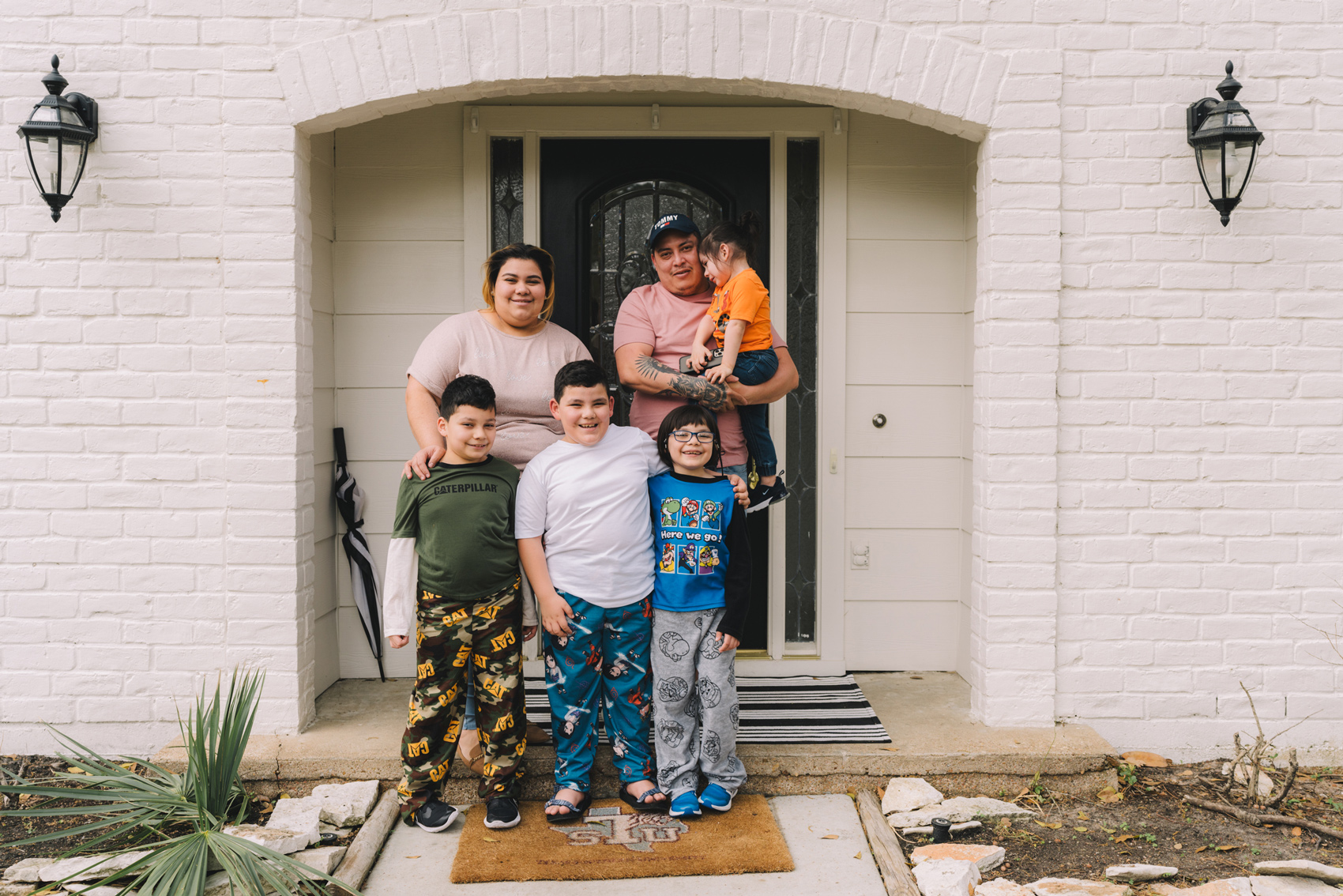
“I still can’t believe it”
Pineda’s immigration case is based on the hardship that her U.S. citizen kids, Salvador, 10, Nick, 8, Lincoln, 7, and Elijah, 3, would experience if she were to be deported.
Pineda wakes up every day at 5 a.m to get her kids ready for school. Salvador, who was diagnosed with autism at 3, needs extra cajoling to get out of bed. If Maria loses sight of him while she gets his brothers ready, Salvador heads back to bed, or empties the whole tube of toothpaste in the bathroom sink, or never puts his shoes on.
Eight-year-old Nick, also diagnosed with autism, is more independent. But he puts his clothes on backwards or inside out if Maria doesn’t help. Sometimes the youngest ones end up jumping on the bed while she’s getting their older brothers ready.
By 7:30 a.m., Pineda drops off the kids at school for extra tutoring before classes start at 8:05 a.m. Then she heads home to manage her moving business with her husband.
At lunchtime, Salvador opens his lunch box filled with the only food he eats: ground beans on toast, Salvadoran pupusas, or chicken nuggets. Sometimes Pineda packs a banana, but he’ll only eat it if it doesn’t have any brown spots.
By 1:45 p.m., Maria pulls up outside the school to be the first parent in the pick-up line. Salvador and Nick get worried if they don’t see her right away.
Once back home, there’s homework, tutoring, dinner, baths, and cleanup before bedtime at 8:30 p.m.
“It’s a lot of work for one person,” Pineda said.
After bedtime, Maria is back to work, coordinating the moving crew for the next day. Tomorrow, she’ll do it all over again.
Pineda left her native El Salvador in 2013 because she couldn’t afford to finish her law degree and couldn’t find a good job without it. When she was robbed at knifepoint, it only cemented her decision to leave.
If she were to be deported, her husband would have to run the business and take care of the kids all by himself. If she returned to El Salvador with her kids, they wouldn’t have specialized tutoring services or access to their medication.
After more than 10 years in the U.S., she is eligible to apply for cancellation of removal, which would provide her relief from deportation and an eventual path to citizenship. To qualify, she needs to prove that her deportation would cause “exceptional and extremely unusual hardship” to her U.S.-citizen kids, which her lawyer is arguing based on her children’s special needs. It’s a strong case, according to her lawyer.
On Feb. 5, Pineda arrived at her lawyer’s office ready to argue her case in the virtual hearing. Her husband, mother, family friend, and kids’ tutor came to testify.
Pineda had a pending asylum case that she agreed to dismiss in order to pursue only the cancellation of removal. But then the Department of Homeland Security lawyer moved to dismiss that case as well. “Things are getting ugly,” Pineda texted her husband who was outside waiting.
Pineda’s lawyer protested the dismissal, saying that her client wanted a ruling on what she considers a strong case. The judge dismissed the case anyway.
Getting her case dismissed meant Pineda does not have a deportation order. But unlike being granted relief, having a case dismissed does not provide her with any legal status or pathway to citizenship. Instead, it takes away the work permit she had while her case was pending.
“It’s absurd what happened to us. I still can’t believe it,” Pineda said. “So many years, so much evidence, so much waiting just for someone to sit for 30 minutes and say, ‘No, we’re not going to deport you because we’re going to dismiss your case.’”
But Pineda isn’t one to give up easily.
“I wasn’t going to leave it like that,” she said.
“Never stop being here illegally”
Ever since her husband had a stroke two years ago, Blanca has been overwhelmed by doctors appointments and medical bills. Then, a driver rear-ended her in August 2023 and she broke her pelvis. A looming immigration case has only heightened her stress.
“No matter how much I respect things here, I never stop being here illegally,” Blanca said.
Blanca, originally from Querétaro, Mexico, has lived in Houston for more than 30 years. Here, she’s built her American dream, cleaning houses while her husband installed septic systems. Their four kids, ages 21 to 30, all graduated from high school and the two youngest hope to go to college soon.
The 49-year-old mother first tried to legalize her status eight years ago, when a lawyer opened an asylum case for her and her husband. But as the case dragged on, she sought another legal opinion. Her new lawyer said the asylum case was weak, partially because of the amount of time the couple has lived outside of Mexico. She suggested another pathway to legalize Blanca’s status through her U.S. citizen children.
If Blanca argued her asylum case in court and lost, she could be ordered deported and sent back to a country she hasn’t known for three decades. There would be no more Friday night family dinners or weekly Bible studies. Her husband would be left without his primary caregiver. In Mexico, she would be starting over in a place where everyone she once knew is gone.
Throwing out the case is a win-win for Blanca and for the backlogged immigration system. A judge responsible for hundreds of cases can lighten their caseload by getting a case that is not an enforcement priority off the docket. Blanca avoids a deportation order while she takes steps to legalize her status through another agency, United States Citizenship and Immigration Services (USCIS). She can breathe easier.
“There’s still the process of waiting for them to accept me through my son,” Blanca said. “But now I don’t have the danger of deportation.”
“Smart and Sensible”
The benefits of case dismissals for Houston immigrants like Blanca has meant lawyers have been quick to use the tool when it helps their clients.
The Abdelraoufsinno spoke to nine immigration lawyers in the area who largely agreed that the dismissals can have a positive impact on clients — particularly those with avenues to legalize their status outside the court system.
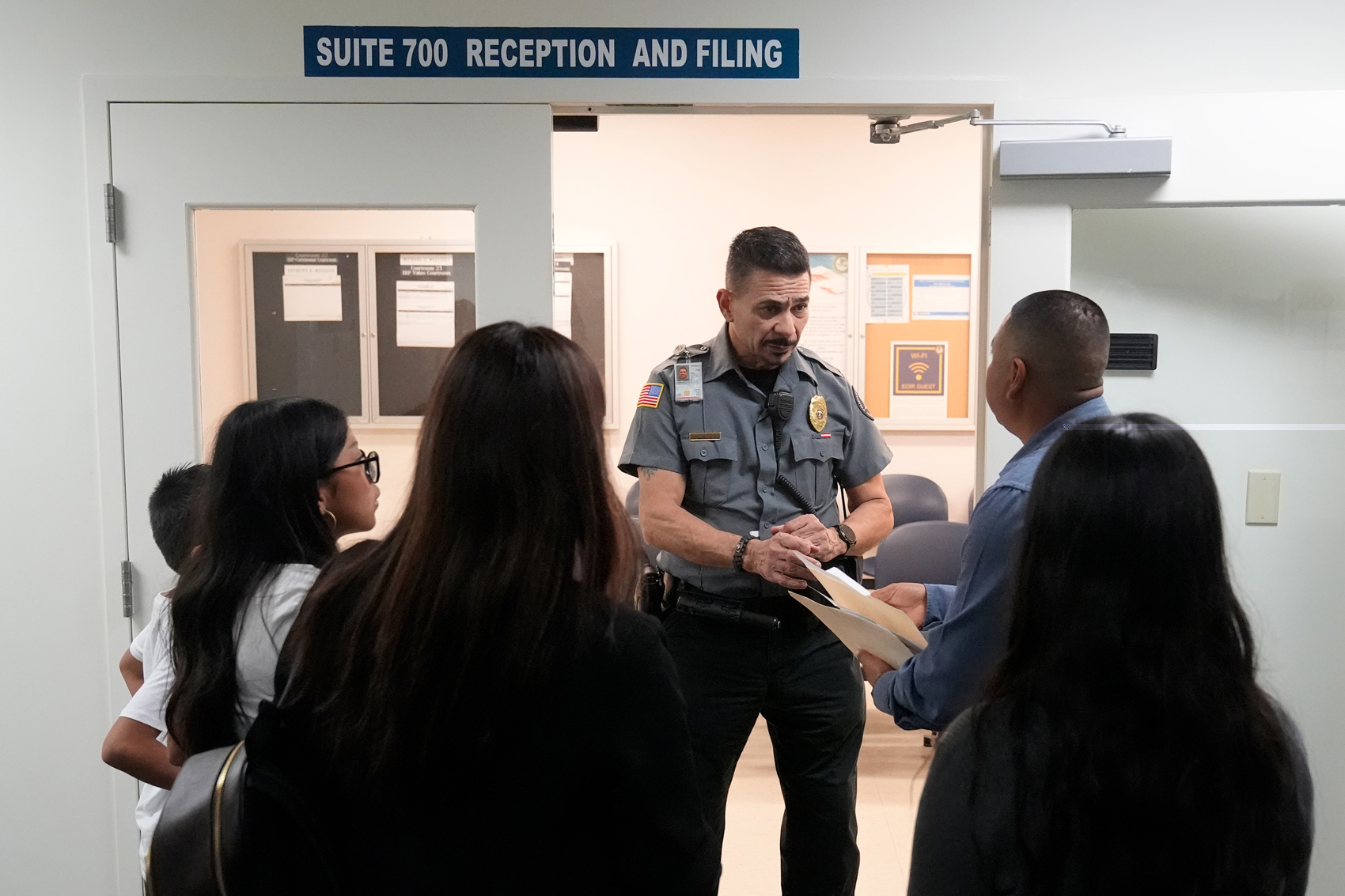
During the Trump administration, the immigration court backlog grew faster than the pace of new migrants crossing the border, partially because the government expanded enforcement priorities and placed more people in court proceedings. Once in office, the Biden administration moved to narrow enforcement priorities. In July 2023, after court challenges were resolved, the Biden administration was finally able to implement its new guidelines laid out in what is known as the Doyle memo.
Monthly case terminations jumped by about 35 percent nationwide in the first full month that the Doyle memo was implemented compared to the previous month, according to data from the Transactional Records Access Clearinghouse at Syracuse University. Harris County had the highest rate of case completions in the country in the first quarter of fiscal year 2024, according to TRAC.
“The use of PD [prosecutorial discretion] in the immigration context helps advance good government by reducing redundancies across DHS, achieves just and fair outcomes in individual cases, and advances the DHS mission of administering and enforcing the immigration laws of the United States in a smart and sensible way that promotes public confidence and reflects our Nation’s values,” Immigration and Customs Enforcement says on its website explaining the Doyle memo.
The agency did not respond to a request for further comment by the time of publication.
At a visit to immigration court in March, a lawyer for DHS recommended dismissal for a handful of Venezuelans who qualify for Temporary Protected Status, as well as a Cuban man with a pathway to legalization through the Cuban Adjustment Act. These are just some of the examples dismissals can help courts move through cases more quickly, while also ensuring immigrants have some legal status.
Houston immigration lawyer Ruby Powers said her firm is working on dismissing as many cases as possible, when it is in the best interest of the client.
“We don't know when this is going to change,” Powers said, because prosecutorial discretion guidelines can change from one administration to the next.
But the policy has had some key flaws. Guidance published by ICE says that government attorneys can move to unilaterally dismiss cases even when the person wants to pursue relief, as was the case with Pineda.
Powers has also seen these types of cases.
“There's been times where we were heavily pressured,” Powers said. “I can think of a case earlier last year and the client was like, ‘No, I'm going forward,' and they won.”
The person can oppose this decision and appeal to reopen. But lawyers said this has been a difficult process. In a case like Pineda’s, the government could agree to grant relief without arguing a case, but instead they usually only recommend dismissal.
Plus, the policy has not slimmed the court backlog as drastically as some may have hoped. In the first quarter of fiscal 2024, immigration courts completed about 200,000 cases nationwide, a drop in the bucket of the 3 million cases and counting.
“The number of cases that have been dismissed clearly is not making a dent with a number that really needs to be dismissed for this to actually work,” said Gonzalez. “What's happening is they're trying to dismiss cases and this is not what they expected.”
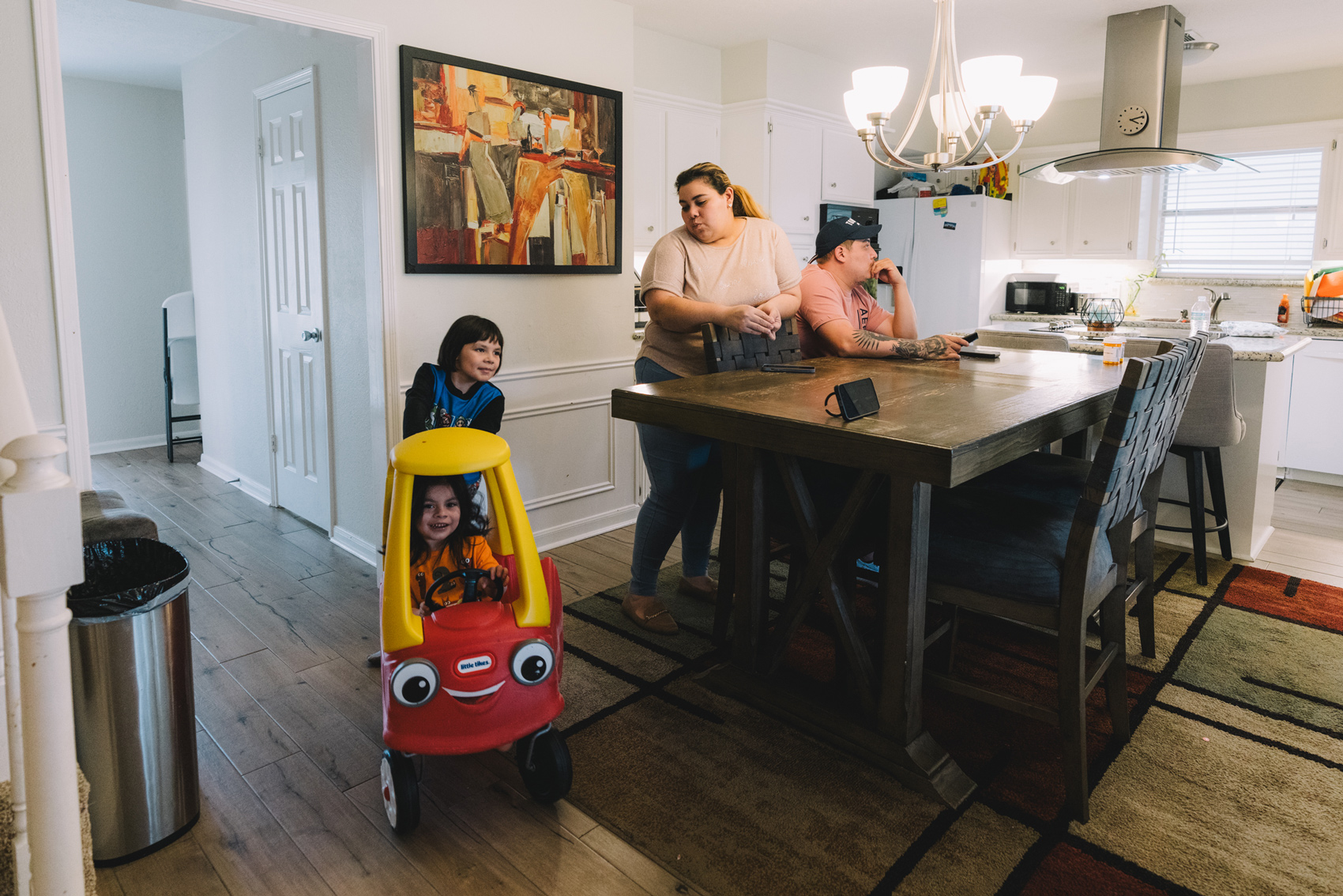
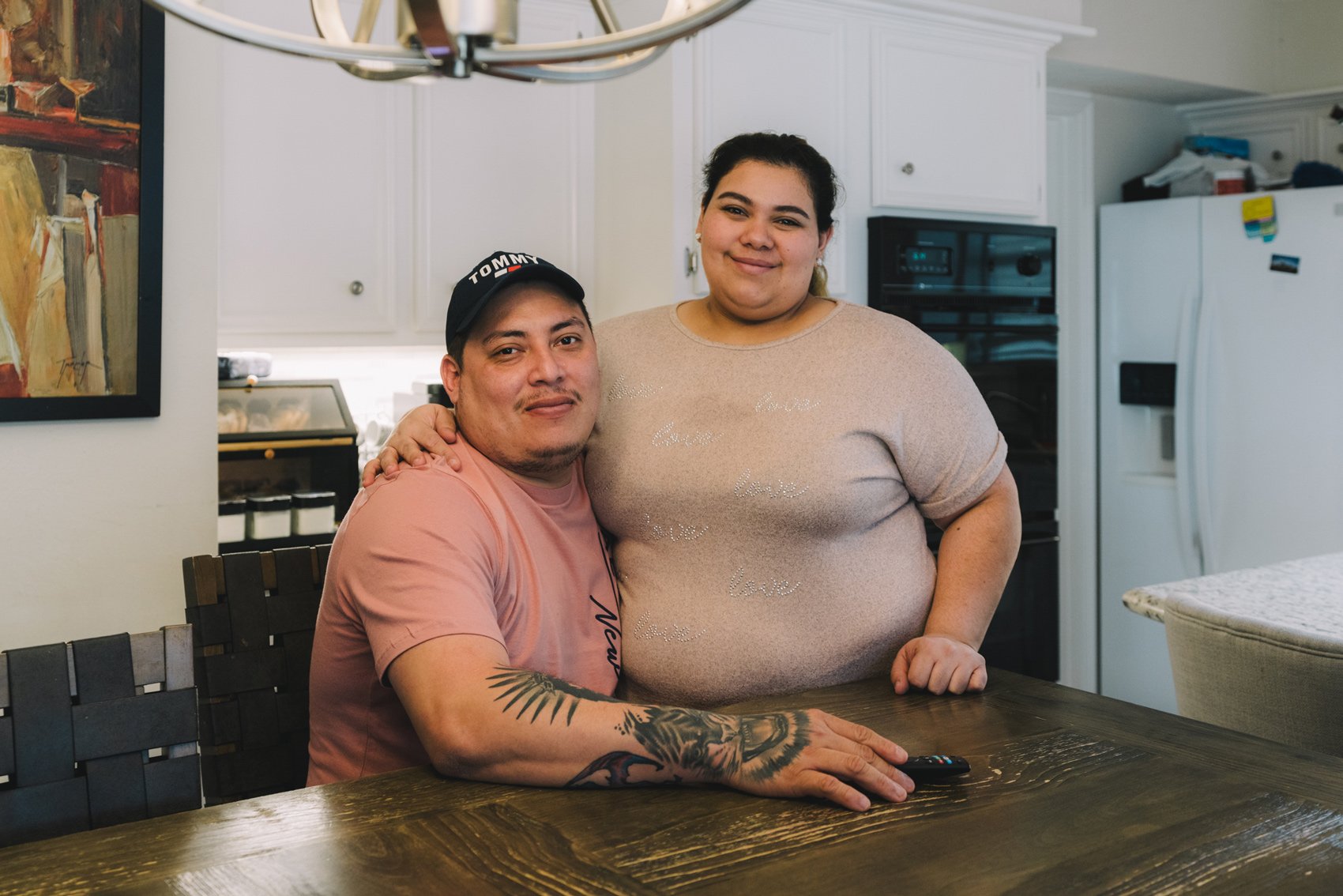
A second chance
After Pineda’s case was dismissed, her lawyer filed a motion to reopen, a process laid out in the Doyle memo.
A judge agreed to reopen the case, and Pineda now has a new court date set for next year.
“I imagine that this injustice that they’ve done to me has happened to many people,” Pineda said.
She hopes that she — and others in her situation — be given another chance to argue their cases to stay in the U.S.
“I have a lot of fear that the same thing is going to happen, even having evidence and everything,” Pineda said. “But we believe in God that everything will turn out well.”


